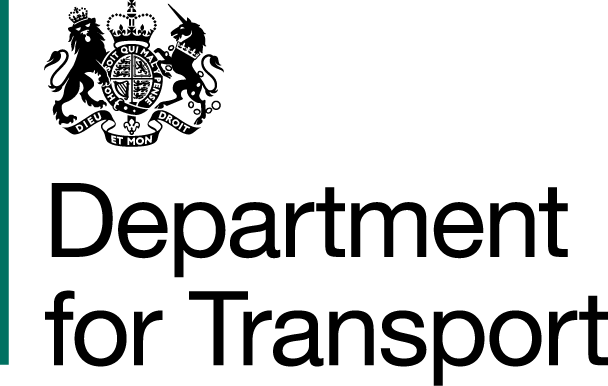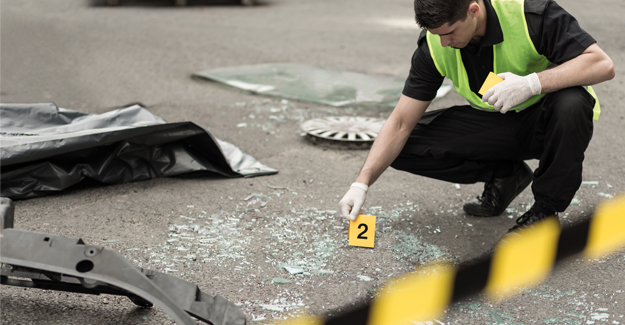About this project
In June 2018, the RAC Foundation received almost half a million pounds of government funding to pilot new ways of investigating road crashes.
The £480,000, plus match funding from National Highways, was used to develop and trial, in a number of police force areas, a different approach to identifying and understanding common themes and patterns that result in death and injury on the public highway. The project sought to establish whether there was a business case for putting more resource into the investigation of road crashes adopting the approaches used to collision investigation in other modes (Rail, Air & Sea) and safety critical industries (Oil & Gas). The work has informed the Government’s commitment to the establishment a Road Safety Investigation Branch.
Project background
The RAC Foundation, alongside other road safety organisations and bodies, has campaigned for a different approach to crash investigation for many years and has published a number of papers on the subject, including:
- Towards an Accident Investigation Branch for Roads
- A Highways Accident Investigation Branch – What Lessons Can Be Learnt From The Rail Industry And The Cullen Inquiry?
- Transport Safety: Is the law an ass?
Project purpose
The purpose of the Road Collision Investigation Project (RCIP) was to establish whether there was a business case for putting more resource into the investigation of road crashes. This was based on a comparison with the approach to crash investigation used for other modes (Rail, Air and Sea) and safety critical industries (Oil & Gas) which suggested there could be a critical gap in the feedback cycle from the investigation of individual incidents through to the development of policies and strategies to reduce the incidence of crashes and mitigate the severity of those still happening.
The project developed new approaches to harvesting and analysing data about the causes of road crashes from different sources, including information from police investigations beyond that captured in STATS19 returns, and looked across agencies to improve our understanding of the circumstances that result in death, injury and traffic disruption.
Project aims and objectives
This project sought to establish whether there was a business case for putting more resource into the investigation of road crashes and if so, to establish how best to develop it. This included the:
- Development of an appropriate analytical framework, grounded in systems thinking, for effective learning from road collision investigation;
- Review of the critical factors that make the ‘learning cycle’ effective for Rail, Sea and Air;
- Collation and review of the learning from relevant and existing initiatives, with input from all relevant bodies;
- Identification and review of existing data from road collisions, identification of additional sources of data and testing the extent to which fresh lessons can be learned. The limitations of current data capture and analysis was identified as well as potential options for improvement;
- Development and application of new analytical protocols for testing in a real-world setting involving two or more police constabularies, in partnership with Highways England and local highway authorities;
- Development of a ‘learning cycle’ from road crashes including expert independent scrutiny and advice to Government; and
- Analysis of the potential range of costs and benefits from deploying a new approach.
Project timescales
RCIP was a four-year project. The project commenced in June 2018. The final report was published in June 2022.
Project partners
This work was led by the RAC Foundation, in collaboration with and supported by the Department for Transport (DfT), National Highways (NH), the National Police Chiefs Council (NPCC) and other national and local organisations.
For more information
To receive updates about RAC Foundation projects please sign-up to our mailing list. You can also follow us on Twitter @racfoundation.
____________________________________________________
Project Updates
Road Collision Investigation Project findings published in Safety Science
November 2022
The paper ‘Using actor maps and AcciMaps for road safety investigations: Development of taxonomies and meta-analyses’ has been published in the Journal Safety Science. The paper includes a network analysis showing a common contributory and protective framework for road safety and emphasises the importance, for safety learning purposes, of understanding blunt end factors in collisions, which create the pre-conditions for incidents to occur. The paper is available open access here.
Government launches country’s first ever investigation branch focused on road safety
June 2022
The DfT have announced the creation of a Road Safety Investigation Branch (RSIB), which will look at how and why incidents happen, which is expected to provide real insight into how new technologies – such as self-driving and electric vehicles – can be rolled out on out roads.
RAC Foundation Director, Steve Gooding said:
“Over the past four years the Foundation has run the Road Collision Investigation Project with funding from government and National Highways. Working with three police forces and many other experts we have demonstrated the strong case for a fresh way of investigating death and injury on the road network which is why we are delighted with this announcement. We look forward to working further with the Government to get the branch set up and make our roads safer still.”
For further details of the announcement please see the DfT press notice.
Two final Road Collision Investigation Project (RCIP) reports have been published to coincide with this Government announcement:
- Gooding, S. & Box, E. (2022). Road Collision Investigation Project (RCIP): Final Project Report.
- Stanton, N. (2002). Road Collision Investigation Project: Development of taxonomies and meta-analysis.
What a Road Collision Investigation Branch in the UK could achieve
November 2021
Elizabeth Box, Head of Research and RCIP Programme Manager at the RAC Foundation discusses what a Road Collision Investigation Branch could achieve in the UK, as part of the Road Safety GB Festival of Road Safety 2021.
Winston Rasaiah, Principal Investigator at the Rail Accident Investigation Branch (RAIB) and the Principal Investigator for RCIP also provided a presentation on ‘RCIP: A new approach to road collision investigation‘ at the RAIB 4th Rail Accident Investigators Seminar on 10th November 2021.
Government consults on forming a Road Collision Investigation Branch
October 2021
The Department for Transport has launched a consultation on the creation of a Road Collision Investigation Branch. The consultation document notes that:
“Independent bodies are longstanding features of accident investigation practice in the UK. The Air Accidents Investigation Branch (AAIB) has been operating since 1915, while the Marine Accident Investigation Branch (MAIB) and Rail Accident Investigation Branch (RAIB) have operated since 1989 and 2005, respectively. All three bodies have the legal power to investigate accidents (and less serious incidents) in their sector and make recommendations about which interventions could be implemented to prevent the recurrence of those events. These recommendations are not binding, but for the Government to consider in the context of its wider priorities.
“In 2018, the Department for Transport (DfT) funded the RAC Foundation (RACF) with £480,000 to undertake the Road Collision Investigation Project (RCIP) [This project was jointly funded by National Highways, who provided £300,000 to the RAC Foundation] which seeks to establish whether there is a business case for an independent Road Collision Investigation Branch (RCIB). While the final project report is expected to be published by summer 2022, the substantial volume of RCIP work to date, which has been shared with Ministers, firmly supports establishing an RCIB.”
RCIP in-depth report recommendation aggregation work gets underway
August 2021
RCIP Investigators are in the process of finalising a total of 37 in-depth collision investigation reports, the recommendations for which will be aggregated by Prof. Neville Stanton of Southampton University. A report outlining these recommendations will be published in early 2022.
RCIP police force area profiles published
March 2021
Dr. Craig Smith and Bruce Walton of Agilysis have completed three reports on neural network analysis using STATS19 data for each of the three RCIP police force areas (Dorset, Devon & Cornwall, Humberside and West Midlands) with an accompanying report on the methodology behind their analysis. These profiles outline collision trends and performance in relation to comparators for each RCIP area and will enable the RCIP investigators to put into context the individual in-depth investigations that they are conducting.
International review of road collision investigation approaches published
December 2020
A UK Road Collision Investigation Branch (RCIB) “should be established as an impartial investigator, independent from the existing judicial investigation process operated by the police.”
The RCIB should have the necessary power and resources to allow it to investigate “‘major’ incidents (i.e. of significant economic impact, as well as those involving injury and death)” and have access to the scenes of incidents as soon as possible after they occur.
These are just two of the thirteen recommendations to come out of a report – International Review of Road Collision Investigation Approaches – by Saul Jeavons and Adrian Runacres of The Transafe Network Ltd.
Emerging findings in the investigation process
November 2020
Matthew Dale, Roads Collision Investigation Analyst at Humberside Police provides an outline of the Road Collision Investigation Project (RCIP) investigatory process and emerging project findings as part of the Road Safety GB Festival of Road Safety 2020.
Addressing the social and economic costs of collisions
October 2020
The Dorset, Devon & Cornwall RCIP investigator has been working to uncover the social and economic costs of several closed collision investigations. From this in-depth analysis the project has begun discussions with a health economist to review these costs and how they could inform the RCIP business case. In relation to this, the project is engaging with DfT and Highways England activities reviewing cost of collision figures, which will be made use of in the final RCIP report.
Report Update – International Review of Road Collision Investigation Approaches nearing completion
July 2020
An International Review of Road Collision Investigation Approaches is in its final stages of development. The work, being conducted by TranSafe Network, aims to identify the International Road Collision Investigation functions and formats with relevant application to the UK context. The report will shortly be going out for International consultation and is expected to be published in Autumn 2020.
Report reviewing – Review process starts for in-depth investigations
May 2020
RCIP Investigators have, to date, produced a total of 18 in-depth reports which are currently going through four levels of review. Professor Neville Stanton has been appointed to conduct an academic expert review of the reports and TRL have been appointed provide an expert panel review of the cases. This process will ensure that expert insight can be brought to bear on the safety learning emerging from RCIP Investigations.
Analysis Commission – RCIP Police force area profiles
March 2020
Agilysis has been commissioned to provide detailed collision profiles for RCIP participating police force areas for interrogation and use by RCIP local investigators. These profiles will outline collision trends and performance in relation to comparators for each RCIP area and will enable the RCIP investigators to put into context the individual in-depth investigations that they are conducting. The work will also inform in-depth investigation selection decisions as the project progresses.
Report Commission – Diesel Spill on the Strategic Road Network (SRN)
February 2020
In association with Highways England, RCIP has been exploring options for better capturing the impact of delay caused by collisions on the motorway and trunk road network, specifically those involving diesel spillage.
This project, commissioned with Tonic Analytics as part of the existing Galileo project, aims to use data driven techniques to measure and quantify the impacts of incidents occurring on the Strategic Road Network (SRN). Modelling and establishing the costs associated with diesel spill on the Strategic Road Network, will provide a method and format for contributing towards articulating the business case for an independent road collision investigation function, as part of the RCIP project.
Training update – Investigators complete next step in their training
December 2019
Local RCIP investigators from Dorset, Devon & Cornwall Police, Humberside Police, Transport for London & West Midlands Police, have completed their training with Professor Neville Stanton of Southampton University on AcciMap investigation models. They are using this approach within their investigation of closed cases to establish system level safety issues for consideration as part of RCIP. Some early findings from this work will be presented to the RCIP steering board for consideration in December 19.
Project working document – RAC Foundation RCIP Feasibility Study
July 2019
The aim of this project carried out by TRL was to assess the validity of the AcciMap framework in relation to in-depth collision investigations by evaluating its compatibility with existing in-depth collision investigation programmes.
The comparison showed good evidence for using the AcciMap method to identify systems failures and provide recommendations that can improve the outcome of individual collisions. The report also highlights a number of challenges and limitations with the method that should be considered before implementation to ensure that the recommendations provide useful safety findings that are evidence-based. The findings of this working document will be used to inform the development of a new AcciMap framework that RCIP analysts will trial to investigate fatal and serious collisions in RCIP local police force areas.
Report published – Models and methods for collision analysis
March 2019
This report by Professor Neville Stanton of the University of Southampton is the first in a series of technical notes and reports to support the development of the Road Collision Investigation Project. It describes how accident causation models have changed over time and details the rationale for taking a systems approach to collision investigation. A summary, explanation and comparison of key systemic human factors accident investigation models and human factors accident analysis methods is provided, illustrated by a case study from the US where an Uber vehicle was involved in a collision with a pedestrian in March 2018.
The report has sought to present a view on collision analysis methods and their applicability to road collisions. Expert judgment has been used to compare the eight methods selected for review, and these have been applied to the case study. From this analysis, Professor Stanton recommends that the Actor Map and AcciMap methods are used for the Road Collision Investigation Project (RCIP).





